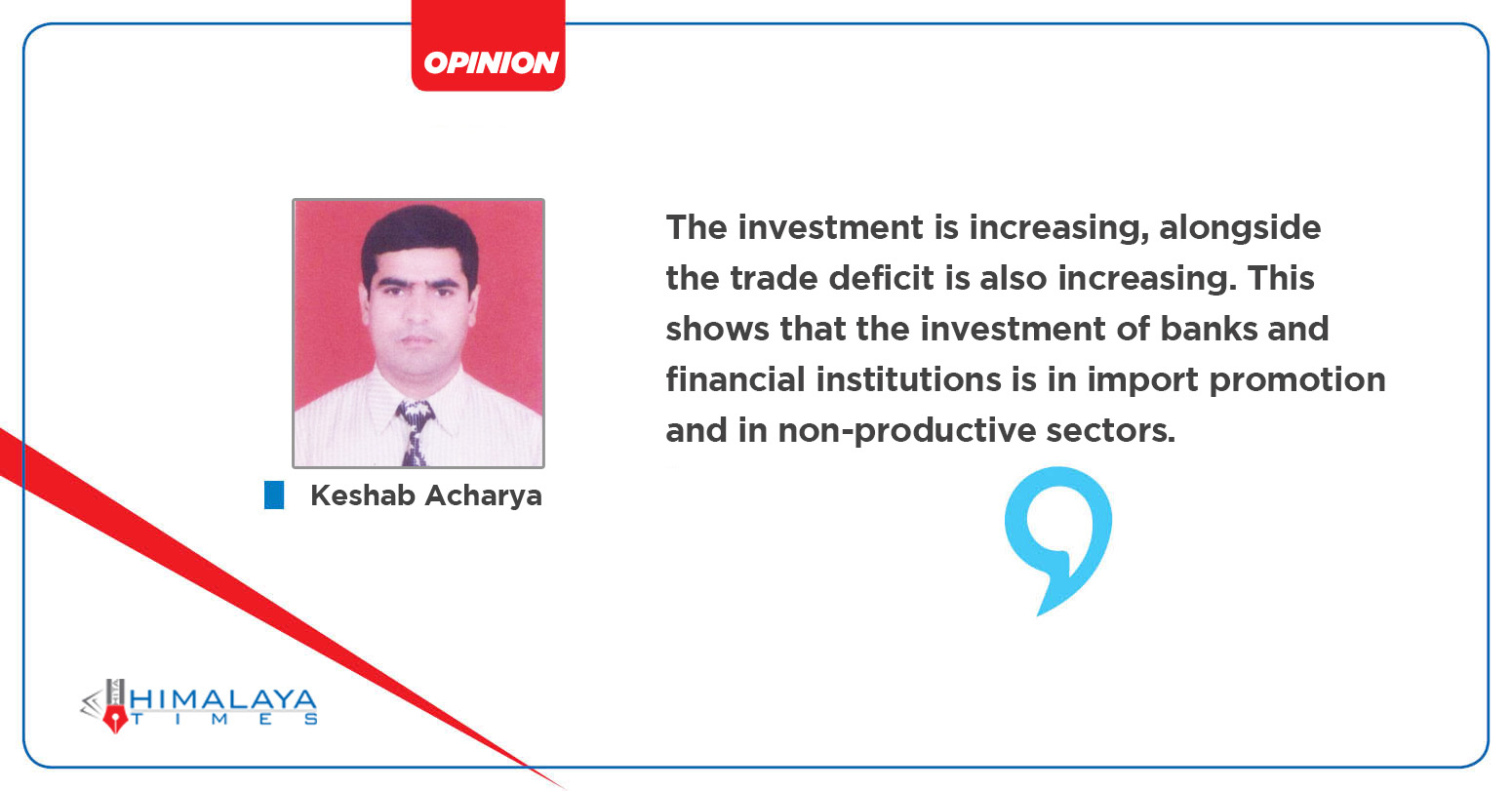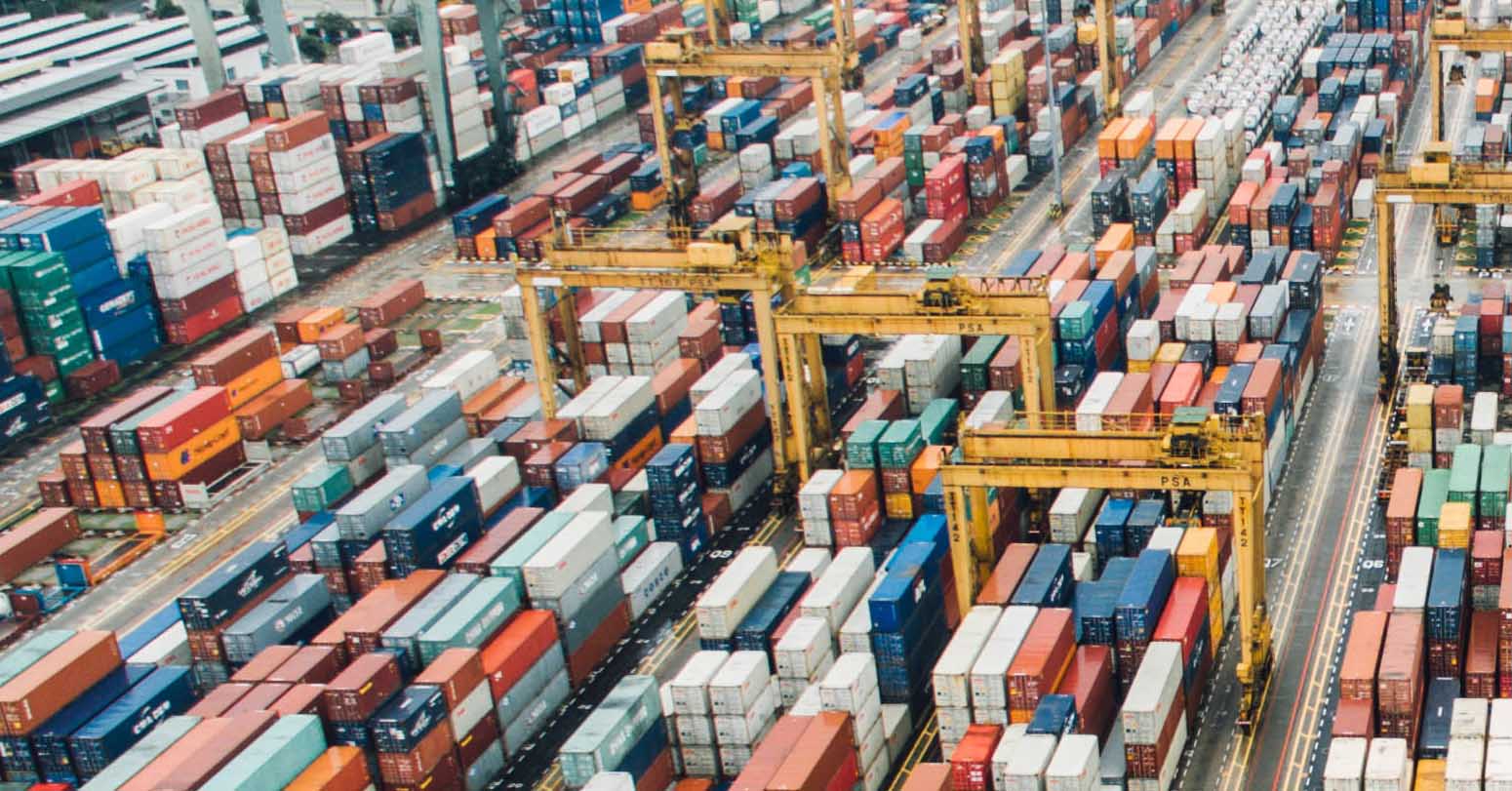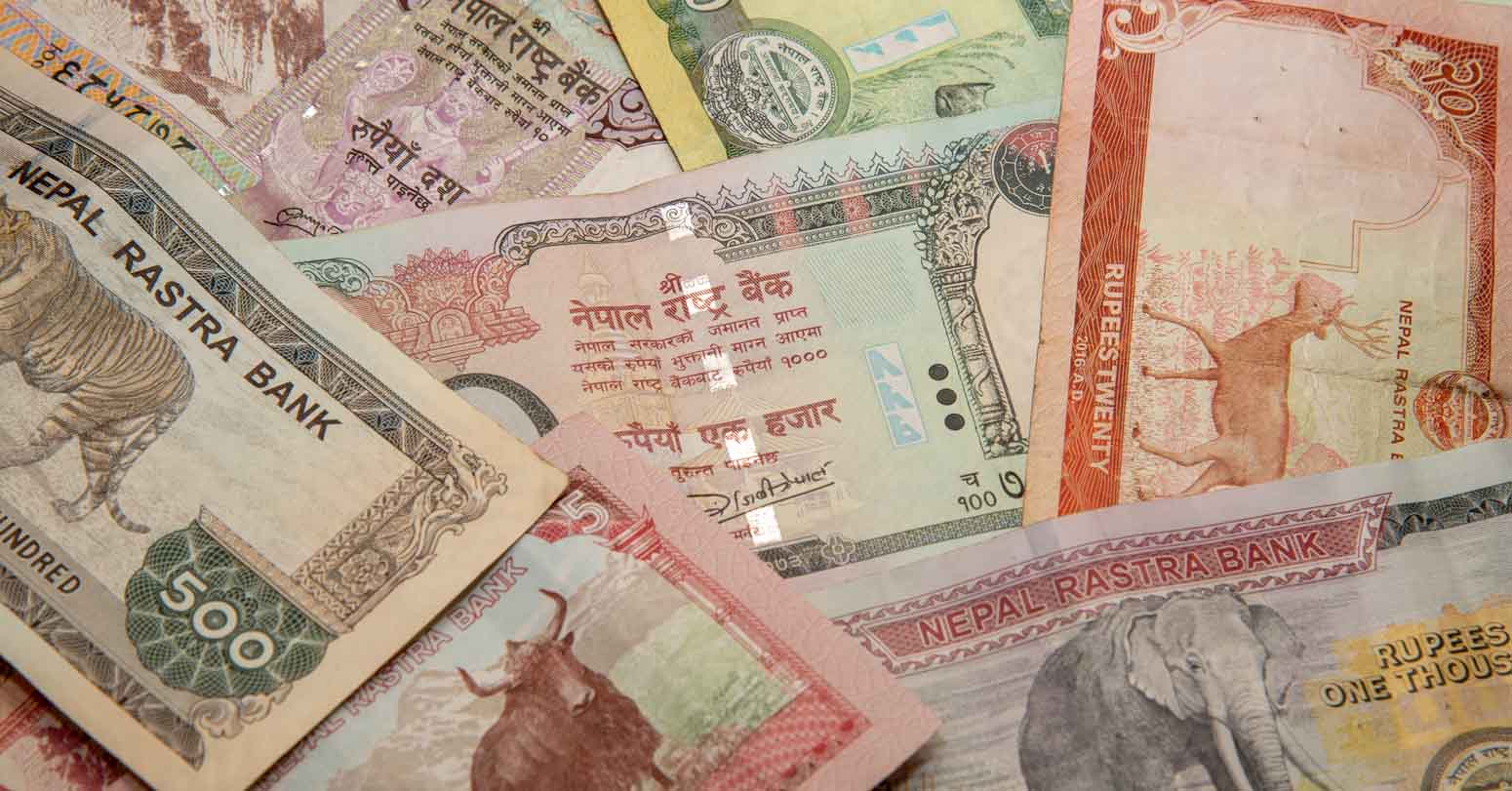- Keshab Acharya
Financial investments are required for the production, exchange and distribution of goods and services. Alongside production, employment and income are also added. Money is distributed in the market through the production and consumption of goods and services. Increased financial investment leads to increased income and the increased income leads to an acceleration in consumption which keeps the economy running. Increased financial investment boosts the economy.
In fact, the economy is the combination of all three aspects. The real situation of any country is depicted by its economy. Financial institutions of the country mobilize investment resources to run the economy. Sources of financial investment are banks and financial institutions. A strong economy is that with strong financial investments. But Nepal does not experience such a situation at present. Although the financial investment is upscaling, the economy is going downwards. The relationship between financial investment and economy should be positive but it is negative now.
Financial investment seems to be engrossed in saving its existence whereas economic activities should be made towards active production and consumption. Its primary goal seems to be focused on keeping investments safe, ensuring profits, taking less risks, and earning money in a short period of time. Even though financial investment is increasing every year, the economy has not been able to onset an upward journey. The rate of trade deficit in the country is becoming more rapid. Declined foreign reserves, remittances began to flowing through the hundi are also the contributing factors.
In the last five years to June, the credit investment of banks and financial institutions to the economy has increased from 12 percent to 28 percent. But the growth of deposits is only 5 to 17 percent. It shows that loans have increased in comparison to deposits, thus when there is more investment in loans than deposits, money is withdrawn from banks and financial institutions. Since the second quarter of the fiscal year 2078/79 lack investable funds, the growth rate of investment in the financial sector is decreasing.
This shows that the investment of banks and financial institutions is in import promotion and in non-productive sectors.
The relationship between credit investment and import should be negative in the country. The investment is increasing, alongside the trade deficit is also increasing. This shows that the investment of banks and financial institutions is in import promotion and in non-productive sectors. At the end of fiscal year 2077, the trade deficit was 10 trillion 99 billion, and by the end of May 2079, it reached 17 trillion 20 billion. Which is 23 percent more than the previous year. In order to minimize this, from the the second quarter of the fiscal year 2078/79, Nepal Rastra Bank started deploying controlling measures. Nepal Rastra Bank adopted a policy of immediate control of luxurious and non-essential items.
For the past few years, Nepal has been known as a country that promotes import. Very low export and rapid import are draining the country's economic resources. The share of export is only 9.43 percent while the share of import is 90.57 percent. As the investment did not go to the productive sector, the country had to depend more and more on imports. As the investment do not go to the productive sector, the country depends more on imports. Otherwise, the trade deficit would not be 17 trillion 90 billion, when the annual budget is 17 trillion 93 billion. It is a sad situation for economy that the trade deficit is around the size of the annual budget.
Due to lack of liquidity, the investments of banks and financial institutions are often stopped. As investment is halted, the economy is stagnant. Investments are low in productive sectors, high in imports, unexplored investments are also focused on import business, due to the increase in investment in areas like real estate, the real estate prices are skyrocketing. If the investment is not enough in the industries, the industries cannot produce enough, on the other hand, when the import is low, the revenue collection is also negatively affected. At present, due to low collection of revenue based on import, the set target of revenue has not been met.
Financial investment should be restricted unless the strategy of increased production and import substitution is adopted by prioritizing the productive sectors.
Increasing financial investment in the economy is a good thing. If investment is made in the productive sector, the demand for the goods will be created, the supply will be according to the demand, from which the monetary transactions will run, employment will increase, income will increase. Ultimately, as production picks up, there is a positive effect on the overall business cycle. Financial investment should be restricted unless the strategy of increased production and import substitution is adopted by prioritizing the productive sectors. Until then, the trade deficit will continue to rise. The country has reached a state of living by importing goods from salt to gold which resulted in current trade deficit. It is important to promote entrepreneurs in comparison to import. The sector cannot come forward unless the state gives reasonable concessions to the business run by the entrepreneur.
Due to the lack of transparency in business, only a small part of the business comes under taxation. In business, goods are imported from the customs without maintaining the real value of the goods and services and billed at a low price and the price cannot be estimated when it reaches the consumer. Actual transactions and paper transactions of traders are different. Because of this, it is difficult for banks and financial institutions to identify good borrowers.
Now it seems that imports should be substituted for strengthening the economy. Imports should be restricted by imposing higher taxes on luxury goods. The government should focus on promoting indigenous products by creating an environment that emphasizes the use of indigenous products. Protection, promotion and development of small and domestic industries in the country should be facilitated. This will help reduce the financial crisis that is in the current economy.
In order to solve the current economic problem, it is necessary for the relevant government agencies, Nepal Rastra Bank, banks and financial institutions, business-related parties, and general consumers to bear responsibility from their respective places. Loans should be invested in productive sectors to increase production, create employment, and make the currency stable. Timely awareness prevents the financial sector from disintegrating and a dim economy begins to emerge.


















Comprehensive Data Protection Law Critically
Gender Differences In Mental Healthcare
Messi Wins Best FIFA Men’s
Erosion of Democracy
Fly Dubai Catches Fire in
“Complexities of the South Asian